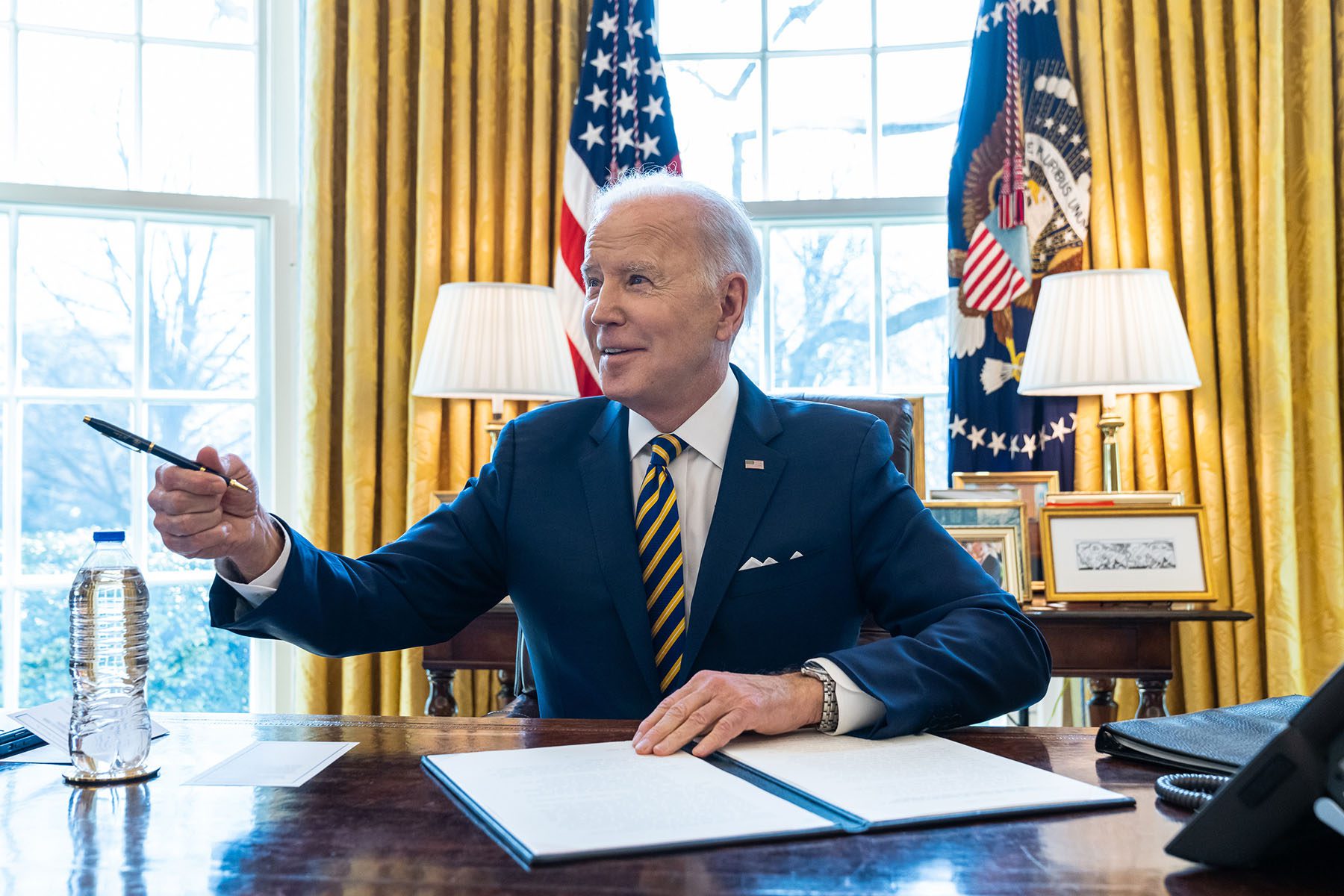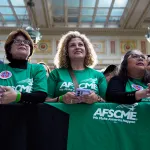Your trusted source for contextualizing the news. Sign up for our daily newsletter.
President Joe Biden is using an executive order to direct federal agencies to work to lower the cost of child care and improve long-term care for older adults and people with disabilities — a move that signaled the administration’s commitment to the care economy.
Senior White House officials called it the most “comprehensive set of executive actions any president has ever taken to improve care,” encompassing more than 50 directives to nearly every Cabinet-level federal agency. The order, signed Tuesday, comes after the president was unable to get through Congress a $400 billion package in 2021 that would have transformed the nation’s caregiving infrastructure.
Since then, the Biden administration has been looking for opportunities to improve access to care and lower costs for people who need it while increasing pay for those providing it.
The goal is to look under every rock and use every tool at the administration’s disposal, White House officials said on a call with reporters Monday evening. And while the orders only direct agencies to consider making improvements in various areas, officials said they send a strong statement as to where the president expects the agencies to improve.
To address the continuing challenges with child care, which is unaffordable for many American families and so inaccessible that parents are spending years on waiting lists, Biden is asking agencies to look at places where they can improve on the supply of care, lower the cost, and increase the pay to workers. Child care workers, most of whom are women, are some of the lowest-paid workers in the country.
Critically, Biden plans to expand on the requirements built into the Chips Act earlier this year, which requires manufacturers to provide their employees with child care to qualify for subsidies of $150 million or more.
The executive order directs agencies to identify which grant programs can support offering child care and long-term care to workers employed on federal projects. Senior White House officials said that, in practice, that could look like building in incentives for employers that have those benefits baked in for their employees.
The Office of Personnel Management will be tasked with setting standards for when and how federal agencies should provide child care subsidies to federal employees, something all federal agencies will also be asked to review internally. The goal, the administration said, is to expand access to federal child care centers and subsidies for federal employees.
On the cost side, the Department of Health and Human Services (HHS) will be directed to consider how to lower or eliminate costs for families under the Child Care & Development Block Grant (CCDBG) program, which helps subsidize care for low-income families. Some of that work will likely come through a 30 percent boost in funding for CCDBG secured in the budget passed at the end of last year. The Department of Defense, meanwhile, will be directed to improve the affordability of child care at military bases.
At the center of the child care crisis is chronically low pay for providers, something the Biden administration hopes to get at with its executive order, as well. HHS will be directed to increase pay and benefits for teachers in Head Start, the federal child care program for low-income infants, toddlers and pre-school-aged children. Part of that increased pay will come from restructuring how providers are reimbursed with federal funds, the administration said.
To help improve the supply of child care, the administration is asking HHS to streamline the process through which providers apply for child care assistance to build or improve child care facilities on tribal lands. An estimated 500,000 American Indian and Alaska Native children under the age of 5 need access to child care.
There is also a crisis of care for older adults and people with disabilities that the order will attempt to address. Nursing homes and home health agencies are both facing severe worker shortages that were only worsened by the pandemic.
Much like in child care, long-term care workers’ wages are low. Many work multiple jobs to make ends meet, and the turnover rate is high; more than half quit within a year. The majority of these workers are women of color.
To help increase pay for the workers who support older adults and people with disabilities at home, the administration is calling for greater transparency in how Medicaid dollars are allocated by home care agencies. The administration says this will increase worker pay, even without a boost in Medicaid reimbursement rates.
“If you look at something like ensuring a greater share of Medicaid spending actually reaches home care workers who are doing the work, that’s not about new dollars, it’s about aligning incentives,” said a senior White House official.
There are also specific recommendations to improve access to care for veterans.The administration is asking the Department of Veterans Affairs to expand the Veteran Directed Care program, which allows veterans to hire health aides to receive care in their own homes, rather than in more institutional facilities like nursing homes. Through the program, veterans can choose their own care staff, rather than an agency selecting staff for them. The program also allows family caregivers to potentially receive financial compensation for their work, should the veteran choose to hire them.
Other provisions are also aimed at supporting the nation’s 43.5 million family caregivers, including a recommendation directing HHS to test a new dementia care model that includes respite care for family caregivers of people with dementia. Respite care is short-term care, typically provided by an agency, to allow family caregivers the time they need to rest and recharge.
It is unclear how much of the executive order is immediately actionable or how quickly American families and care workers will feel a difference in their lives.
For example, while the order directs officials to “build on the work” of establishing minimum staffing ratios for nursing homes, it will not set those ratios. Currently, there is no minimum federal requirement for the number of nursing home staff per patient.
The Biden administration first announced its intent to establish minimum staffing ratios for nursing homes in March 2022.
A senior official said during the call that the announcement is still expected to be released this spring. Officials answered questions on the condition that their names were not used.
The White House was clear that the administration wants to see investments on the scale of what the president is proposing in his fiscal year 2024 budget — $600 billion over 10 years for child care and $150 billion to improve and expand access to Medicaid home services in that time frame — but in the meantime, officials said, “we’re going to do everything we can to increase access to care and support care workers and family caregivers.”






